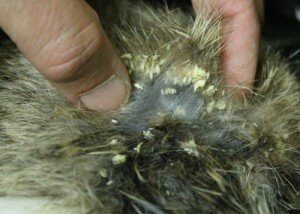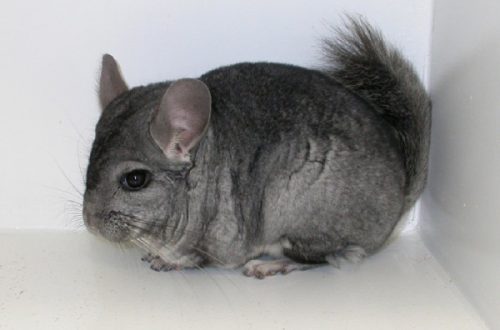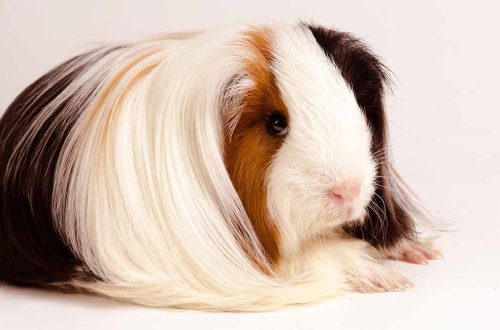
Eye diseases in chinchillas: suppuration, white discharge, cataracts and conjunctivitis

Chinchillas, unlike artificially bred domestic rodents, are distinguished by strong immunity, which, for a fairly long life of a pet, protects the animal from many infectious and non-contagious diseases. Improper feeding and violation of the conditions of keeping exotic animals provokes the development of various pathologies in pretty rodents. Eye diseases in chinchillas are a frequent problem, requiring timely diagnosis and treatment under the supervision of a veterinarian.
Contents
Conjunctivitis
Conjunctivitis is an inflammatory disease of the mucous membrane of the eye. Conjunctivitis in chinchillas develops as a result of injuries when sitting down or falling, getting a foreign body, irritation of the mucous membrane with smoke, dust, unsanitary conditions, the disease can be a symptom of various infectious and non-contagious diseases.
If a chinchilla has a watery eye, photophobia, swelling of the eyelids, redness of the mucous membrane of the eye and eyelid skin, eyes fester, purulent contents accumulate in the corners of the eyes, sometimes the eyes completely stick together, one can suspect the presence of conjunctivitis or keratoconjunctivitis in a pet. Purulent inflammation of the mucous membrane of the eye, if left untreated, often ends with ulceration of the cornea of the eye, partial or complete loss of vision.

Often the owners of the chinchilla do not know what to do if the chinchilla’s eye fester. Treatment of the disease should be prescribed by a veterinarian, at home, if the chinchilla does not open its eyes, it is recommended to remove the dried discharge with a damp swab dipped in warm boiled water, rinse the animal’s eye with sterile saline, chamomile decoction or weak brewing of black tea, drip anti-inflammatory drops ” Ciprovet” and immediately contact a specialist. Sometimes a chinchilla’s eyes hurt in case of serious infectious diseases, the pet may need to prescribe a course of antibacterial agents.
Cataract
Cataract – partial or complete clouding of the lens of the eye, characterized by its decrease in light transmission and partial loss of vision. Anatomically, the lens must be absolutely transparent, it is a lens that refracts light rays and directs them to the retina of the eye. The name of the disease “cataract” is translated as a waterfall, an animal with this pathology of vision sees objects, as if through jets of falling water.
Causes of cataracts in chinchillas are:
- metabolic disease;
- lack of vitamins;
- diabetes;
- eye pathology;
- eye trauma;
- radiation exposure;
- age;
- congenital anomaly.
Cataracts are inherited by chinchillas, therefore, when purchasing an exotic pet, it is recommended to check with the breeder whether the parents of the animal had this eye pathology. Cataracts in chinchillas are a reason for culling breeding individuals; such animals are not allowed to be bred. It is necessary to treat cataracts in chinchillas under the supervision of a veterinarian, most often the animal loses its sight. In people with this eye pathology, a micro-surgery is prescribed.
Belmo
Belmo is a pathology of the organs of vision, in which there is a persistent clouding of the cornea of uXNUMXbuXNUMXbthe eye.
The chinchilla’s belmo is formed as a result of:
- eye injuries;
- complications of conjunctivitis;
- infectious diseases.
The animal has a white spot on the cornea, partial or complete loss of vision. Most often, eye pathology in pets is not treated, corneal thorns in people are removed by surgery.
Diseases that manifest symptoms of eye damage
Some infectious and non-infectious diseases of chinchillas may present with eye symptoms.
Microsporia and ringworm
Damage to the skin of an animal by pathogenic microscopic fungi, the disease is transmitted to humans.
With an infectious disease in a chinchilla:
- hair falls out around the eyes, nose and on the limbs;
- clearly defined, round, scaly, hairless zones are formed on the skin.
If left untreated, the animal rapidly loses hair, the skin becomes covered with pustules and ulcers. Diagnosis of the disease is carried out by a veterinarian by microscopic examination of skin scrapings, treatment includes the use of antifungal drugs.
Mite
A parasitic small insect that rarely infects chinchillas. Sources of infection can be feed, litter or the owner’s hands. Parasitizing ticks in chinchillas is accompanied by itching and anxiety of the animal.
Chinchilla:
- often itches and bites fur;
- there is hair loss around the eyes, ears and on the neck with the formation of inflamed red wounds.
When a pathogen is detected under a microscope, the veterinarian prescribes treatment with insecticidal sprays to the animal.
Allergy to food, filler, houseplants
Allergy in chinchillas is manifested by mucous discharge from the eyes, sneezing, baldness and itching. Treatment includes elimination of the allergen and a course of antihistamines.
Cold
A cold in animals occurs when the conditions of detention are violated.
An exotic animal has:
- severe tearing and swelling of the eyes;
- runny nose, sneezing;
- wheezing, rapid breathing, fever.
This condition is fraught with the development of complications, urgent treatment of a sick animal is required under the supervision of a specialist.
Diseases of the teeth
Ingrown tooth roots is a pathology of chinchillas, in which the tooth root is elongated, it grows into soft tissues, damage to the organs of vision and nasal sinuses. Malocclusion – uneven growth of incisors and the formation of malocclusion.
Dental pathologies develop when:
- improper feeding of the pet;
- oral trauma or genetic disorders.
Observed:
- white discharge from the eyes;
- salivation;
- food refusal.
Treatment of dental pathologies is carried out by a specialist in a veterinary clinic using general anesthesia.
If the owner noticed that the chinchilla has problems with the eyes: white mucus, tearing, redness and swelling of the eyelids, purulent discharge, hair loss, you should immediately consult a specialist to avoid possible loss of vision.
Self-treatment of eye diseases in chinchillas with human eye drops is highly discouraged and can aggravate the pet’s condition.
Video: chinchilla eye disease
What to do if a chinchilla has eye problems
2.5 (50%) 12 votes





